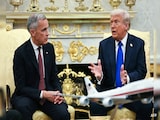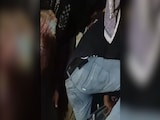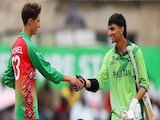- Election Commission sources said retaining polling footage beyond 45 days risks voter privacy and security
- Rahul Gandhi has accused the body of deleting election evidence and claimed there is 'match-fixing' of polls
- The poll body has said it retains CCTV footage for 45 days to align with election petition-filing deadlines
Countering demands for footage from poll booths being retained for more than 45 days, Election Commission sources have said that while they seem reasonable on the face of it, they will have an adverse impact on the privacy and security of voters.
On Saturday afternoon, Congress leader and Leader of the Opposition in the Lok Sabha Rahul Gandhi had questioned the "match fixing" of elections and specifically mentioned the rule of deleting videos of polling within 45 days.
In a post on X, Mr Gandhi posed a series of questions to the Election Commission and alleged that the body responsible for giving answers is deleting evidence.
"Voter list? Will not provide machine-readable format; CCTV footage? It was hidden by changing the law; Photo-video of the election? Not in 1 year, we will destroy it in 45 days. The one from whom answers are needed is destroying the evidence. It is clear the match is fixed. And a fixed election is poison for democracy," the Congress MP wrote in Hindi.
"What is veiled as a very logical demand is contrary to the privacy and security concerns of the voters, legal position laid down in the Representation of the People Act 1950/1951 and the directions of the Supreme Court," a source said.
Laying out the reasons, the source added, "Sharing of the footage, which would enable easy identification of the electors by any group or an individual, would leave both the elector who has voted and those who haven't vulnerable to pressure, discrimination and intimidation by anti-social elements. For instance, if a particular political party gets fewer number of votes in a particular booth, it would easily be able to identify, through the CCTV footage, which elector has voted and which elector has not, and thereafter, may harass or intimidate the electors."
The sources said retaining the CCTV footage is not a mandatory requirement but the Election Commission does so for 45 days because it is in line with the timeframe laid down for filing a petition challenging any aspect of the voting process.
"Since no election can be challenged beyond 45 days of the declaration of the result, retaining of this footage, beyond this period, makes it susceptible to misuse of the content by non-contestants for spreading misinformation and malicious narratives. In case of an election petition being filed within 45 days, the CCTV footage is not destroyed and also made available to the competent court when asked for," the source said.
The source stressed that safeguarding the interests of voters and maintaining their privacy and secrecy is very important to the Election Commission, and it will not compromise on this.
'Upholding Rights'
The Supreme Court, the sources pointed out, has held that the right to vote includes the right not to vote and the right of secrecy is accorded even to those who have decided not to cast their ballot.
Violation of the secrecy of voting, they said, is a punishable offence under Section 128 of the Representation of the People Act, 1951, and anyone who does so can be punished with a prison term of up to 3 months, or a fine, or both. "The Election Commission is legally bound and committed to protecting the privacy of the electors and secrecy of voting, so video footage from polling stations cannot be given to any person, candidate, NGO or any third party without the express consent of the electors," a source said.
"Videography of polling day essentially captures the sequence in which electors enter the polling stations and the photo or identity of such electors. This is akin to a live Form 17A (Register of Voters) under Rule 49L of the Conduct Of Elections Rules, 1961, which contains information pertaining to the sequence in which electors enter a polling station, serial number of the elector in the electoral roll, details of the Identification document produced by the electors and their thumb impression or signature," the source added.
Earlier Charge
Earlier this month, Mr Gandhi had alleged match-fixing in the November 2024 Maharashtra Assembly elections. He had raised questions about what he claimed was the addition of fake voters to the rolls, inflated voter turnout, targeted bogus voting, rigging the panel for appointing the Election Commission, and hiding evidence.
He had also expressed apprehension that the same thing could happen in the Bihar Assembly elections later this year.
The Election Commission had responded and rapped the Congress for making unsubstantiated allegations and ignoring facts.















